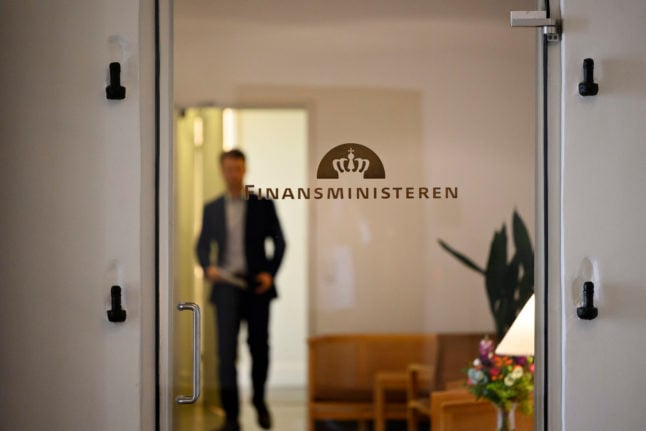[ad_1]
ECONOMY
Denmark’s government has announced an agreement has been reached over the delayed 2023 budget.
Published: 24 April 2023 11:06 CEST

Denmark has announced a finalises 2023 budget agreement with opposition parties. File photo: Philip Davali/Ritzau Scanpix
The draft budget announced by the government last month has been finalised following negotiations between opposition parties and the government.
Two centre-left parties, the Socialist People’s Party (SF) and Social Liberals, and two on the right – the Danish People’s Party and Liberal Alliance – have agreed on a budget with the government, the Ministry of Finance said in a press statement.
The budget must be approved by parliament, with a vote set to be scheduled for May 16th. Given the agreement between opposition parties and the majority coalition government, that is likely to be a formality.
The three-party coalition government has a parliamentary majority and can therefore pass its budget without any opposition support, but wanted a broader agreement for the 2023 finance plan.
The draft budget left a relatively small figure of 200 million kroner as a so-called forhandlingsreserve or negotiable reserve. Opposition parties were invited to talks with the government to decide on how this money will be spent.
The sum is less than the usual reserve set out in draft budgets.
A cautious economic approach to spending is needed given global circumstances including the war in Ukraine, inflation and last year’s energy crisis, Finance Minister Nicolai Wammen said when the draft was presented.
READ ALSO: KEY POINTS: What is in Denmark’s 2023 budget proposal?
Negotiations brought reserve up from the 200 million kroner set out in the draft budget to a final 350 million kroner, according to broadcaster TV2.
That still falls some way short of reserves of up to 1.5 billion kroner seen in past budgets.
Additional parental leave will be given to parents of twins or other births of more than one child, according to TV2.
The Danish Council on Climate change could get more funding, as could mental health care for young people. Tax cuts for people with stock market profits and higher subsidies for young people are were also secured by the opposition parties, the broadcaster reports.
Danish budgets are usually tabled and eventually adopted during the autumn, but last year’s election disrupted the normal timetable. When a budget is delayed, the previous year’s budget can be continued on a temporary basis.
Two parties on the left wing, Red Green Alliance (Enhedslisten) and Alternative, earlier withdrew from talks to be part of the budget agreement following negotiations on the draft version.
“The government has shown itself to be unprepared to make any changes to its own draft,” Red Green Alliance MP Pelle Dragsted said at the time.
[ad_2]
Source link
